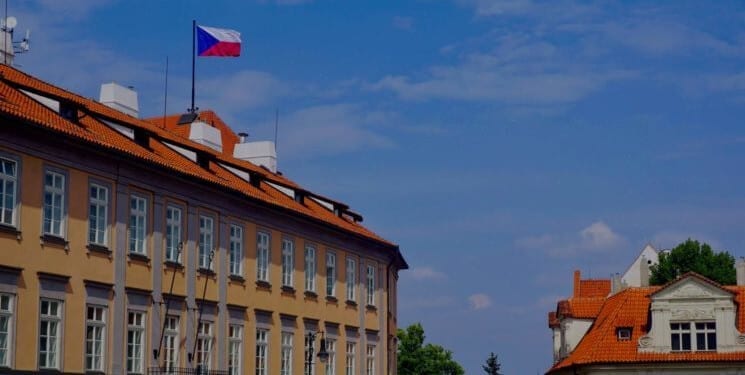In December 2020, an intrigue in the Czech establishment was caused by in private meeting held in Moscow between Martin Nejedly, extraordinary adviser to the Czech president and Yuri Ushakov, adviser to the Russian president. Czech diplomats were not present at the meeting and the talks were not recorded, although, technically it was an official visit, inasmuch as M. Nejedly flew to Moscow on a plane belonging to the office of the President of the Czech Republic. The fact that the meeting of advisers was held in complete secrecy caused utmost dissatisfaction of Czech journalists.
However, it became known a little later that the construction of the new power units for the Czech Dukovany Nuclear Power Station was the subject of talks. This project is expected to be one of the largest in Central Europe, as its implementation will require about 20% of GDP in the Czech Republic.
The Russians’ interest in this project is quite evident. In the short run, this is an opportunity for the Russian Rosatom, a monopoly manufacturer of equipment and fuel for nuclear power plants to gain profit. In the long run, the Czech Republic’s dependence on Russia will increase, as far as the specifics of nuclear energy made it possible to use a specific type of fuel suitable for a Russian-made reactor, which is produced in the Russian Federation only.
Earlier, the Czech secret services, as well as political forces opposed to the President of the Czech Republic Miloš Zeman, have repeatedly declared inadmissibility of involvement of Russian and Chinese companies in this project.
In December 2020, deputies of the Upper Chamber of Parliament (Senate) made a similar appeal. According to the parliamentarians, those who are hostile to NATO states should not be invited to participate in such a strategic project, and that is unacceptable for the companies from the states which representatives fell into the EU sanctions list to participate in the construction.
Meanwhile, it is important to remember that the Czech Republic is a country with a parliamentary system of government, where the role of the president is very limited. President Zeman has never hidden his suspiciously warm attitude towards the current Russian regime and Russian leader Vladimir Putin. During his rule, M. Zeman overtly lobbied the Russian interests in the EU, and also constantly provided ideological support to Russia. For example, Mr. Zeman became the only leader of the EU member states who visited Russia during its main propaganda event of 2020 – a military parade in Red Square in Moscow. In addition, M. Zeman publicly and consistently expresses full support for the Kremlin in the issue of Russia’s occupation of the Crimean peninsula. At the same time, Czech politicians and general public are convinced of Zeman’s loyalty to Russia to be caused not so much by his internal convictions as by trivial bribery on the part of Moscow.
By the way, in 2007, the aforementioned ally of the Czech President M. Nejedly together with the Lukoil Russian oil company became one of the founders of the Lukoil Aviation Czech joint venture, which supplies the Czech market with aviation fuel (it is noteworthy that in 2016 this company was convicted of tax evasion and court imposed a large fine on it, which had to be repaid by the Russian parent company).
Today, the Russian party keeps seeking the opportunities to circumvent the international sanctions imposed on it. Thus, the possibility of reformatting the Czech ŠKODA JS, which is a subsidiary to the Russian OMZ (United Heavy Machinery) holding is being considered. The most probable scenario is the purchase of ŠKODA JS’ shares by the Korea Heavy Industry & Development. It is interesting that ŠKODA JS does not produce any equipment for nuclear energy of its own development, but is engaged exclusively in the sale of relevant Russian equipment bypassing EU sanctions.
Thus, it is still too early to say with full confidence that Russia and China will definitely not be allowed to build the new power units in the Czech Republic. At the same time, we can be assured that the Czech secret services, members of the Senate and public activists will closely monitor developments around the Dukovany nuclear power plant.

